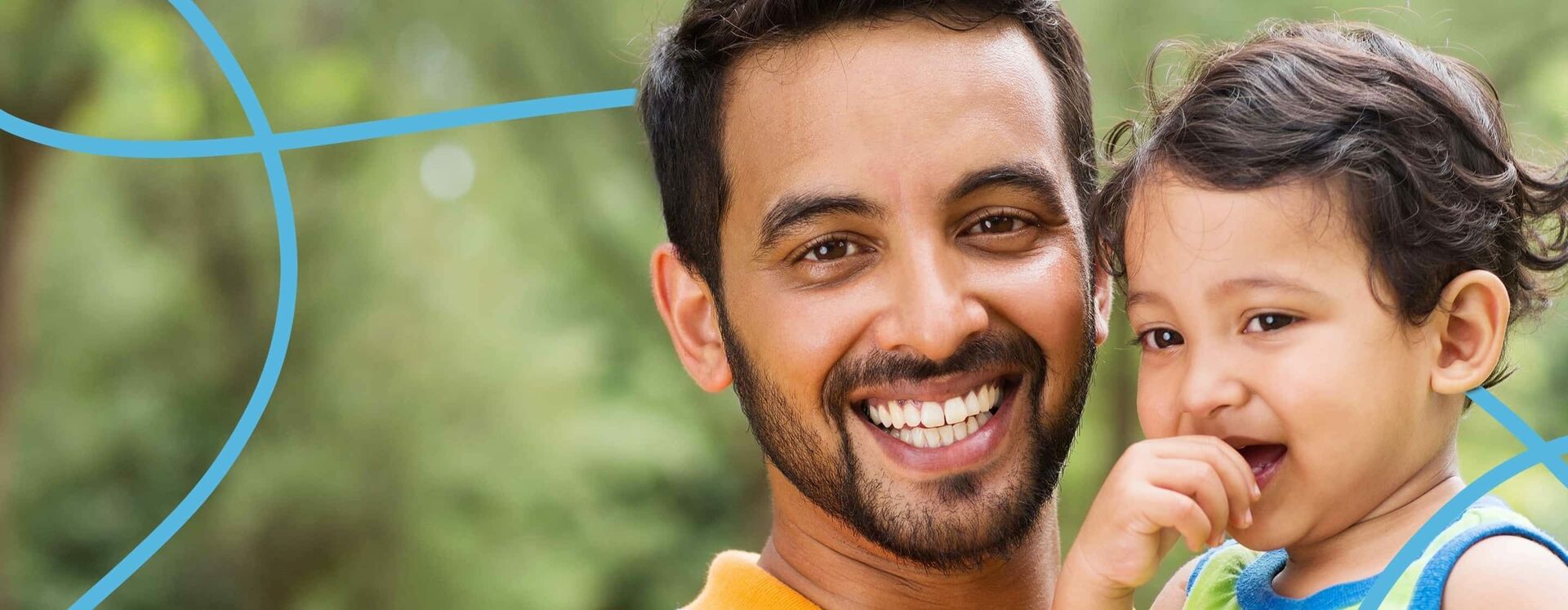
When do children start losing teeth?
Children start losing teeth at the age of 6. From this age, the baby teeth fall out. By the time they are 12 years old, they will eventually lose all their baby teeth. When they reach the teenage years, children will have developed 32 permanent or adult teeth.
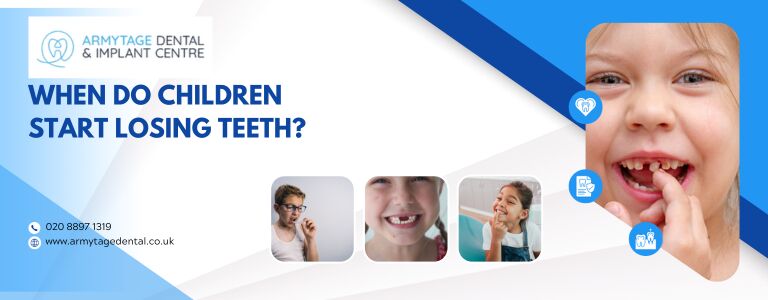
Why do we have two sets of teeth?
Every person has two sets of teeth. The baby teeth and permanent teeth. The child's baby teeth are more like placeholders for future permanent teeth. They create space in the jaw for future permanent teeth.
There is a common misconception among parents that the milk or baby teeth don’t matter as much, because they will eventually fall out. This is potentially problematic, as it can lead parents to think that brushing and caring for the baby teeth is not as important, as long as the child adopts good practices by the time they have their adult teeth.
Both sets of teeth are important and we want to ensure that children develop good brushing habits from a young age. Let’s explore the role of the baby teeth and the adult teeth in more detail.
Baby Teeth
The mouth of a child initially has 20 teeth. These are called baby teeth or primary teeth. They include:
4 first molars
4 second molars
4 canine teeth (also called eye teeth)
4 lateral incisors
4 central incisors
In each set, we have two bottom teeth and one is found on each side of the mouth. The other two are found on the upper side, with each tooth on either side of the mouth. When children reach around the age of 6, the majority of children’s baby teeth start to fall out. Naturally, the baby teeth do not fall out at the same time.
The teeth are usually lost one by one, starting with the front teeth. From the age of 6 to 12, it’s common for children to have gaps in their smiles.
Permanent Teeth
An adult mouth contains 32 permanent teeth. These are:
4 third molars or wisdom teeth
4 first molars
4 second molars
4 second premolars
4 first premolars
4 canine teeth
4 lateral incisors
4 central incisors
Permanent teeth will only erupt after the baby tooth root has been dissolved completely. At this point, the child has loose teeth, the tissue surrounding the gum is what holds them in place.
It’s common for overcrowding to lead to issues with the third molars erupting. This can happen during the teenage years or much later in life. If there are signs that these teeth are impacted from a young age, your dentist might recommend removing them before they can pose an issue.
First out: Central incisors
Most of the time, people will lose baby teeth in the order in which the eruption happened. As a result, the first tooth to fall out will be the lower central incisors as they appear first when a child is about 6 months old.
They will fall out around 6 – 7 years of age in order to make room for permanent teeth. The upper central incisors emerge after the lower ones have already emerged.
Losing teeth may be a great moment for a few children, particularly when they learn about the tooth fairy. Some children might find it upsetting as they assumed the teeth were permanent. Children might also think that losing their teeth will be painful, but it rarely hurts.
They might experience some discomfort when the tooth becomes loose as they might bite down with a loose tooth and this can cause some discomfort in the gums. Once a tooth is loose, it’s a good idea to get it sooner so they don’t swallow it.
Next up: Lateral incisors
The lateral incisors are next in falling out after the central incisors. The upper lateral incisors are typically the first to loosen up and the lower teeth usually loosen up later on. Generally, this occurs around ages 7-8 years old.
Your children are more comfortable with the concept of the teeth falling out at this age. It must not be a frightening event because they will have previously lost some teeth before losing the lateral incisors.
Let’s see those choppers: Primary first molars
As opposed to when your children’s teeth begin, losing them can be a far less stressful experience for the parents. Although teething is unpleasant in general, the incoming molars can be particularly painful and uncomfortable for babies and toddlers.
Primary molars are also known as first molars. When children lose these molars or they are replaced with permanent teeth, they will normally feel little pain. Children will normally lose the first primary molars when they reach the age of 9 to 11 years old.
Final act: Primary second molars and canines
The primary second molars and the canines are the last baby teeth to fall out. The canines normally fall out around 9 to 12 years of age. The primary second molars are typically the last teeth to fall out.
At this stage, it’s important to visit the dentist regularly so they can monitor for signs of crowding or alignment issues. Orthodontics can be used at this stage to help ensure the adult teeth have enough space to emerge correctly. Impacted teeth can be painful and could lead to unnecessary tooth loss or severely misaligned teeth.
Why Is It Important to Care for Baby Teeth?
Although baby teeth are only in the mouth for a brief time, they are quite important:
They help to make room for permanent teeth
They help to retain the normal appearance of the face
Help information of clear speech
Assists in achieving healthy eating habits because decayed teeth and missing teeth can pose difficulties in chewing and can make children reject foods.
They also assist in giving permanent teeth a good and healthy start
To comprehend the consequences of decaying baby teeth on permanent teeth
What Happens at the First Dental Visit?
The first visit to the dentist is generally short and includes minimal treatment. This appointment allows your child to meet the dentist and become accustomed to the sights and sounds.
Certain dentists can request the parents to hold their child during their first visits to the dental chair. Or you might sit alongside your child and allow them to sit in the chair independently. We can work with you to determine what is best for your child.
The dentists will examine your child’s mouth for any tooth decay, and check their mouth for any probable gum problems. They will use a small mirror to inspect the teeth from all angles. They might also use a small tool to touch the gums, but this shouldn’t hurt.
Any abnormalities, oral tissue and the jaw will also be examined. The child’s teeth will also be cleaned when appropriate and fluoride treatment might be used to help strengthen the soft baby teeth.
The dentists will also teach the fundamentals of oral health and other related topics. You may also talk about fluoride requirements, oral habits such as lip sucking, thumb sucking and more.
A trip to the dentist is not only great for your child, it’s also great for parents. This is your opportunity to learn the tips and tricks that will help you take care of your child’s teeth. If you have questions about oral health and how to encourage your child to take good care of their teeth, this is a great time to ask.
Easing Your Child’s Fear of the Dentist
The first dental visit of a child is a wonderful event for both parents and dentists. The child will pick up on any anxiety that the parents display. In addition, an unfriendly dentist might instil anxiety in a child.
It's important to remember that children's worry is completely normal. Some fear that they will be separated from their parents; others fear the unknown; others fear being hurt. A dentist who specialises in treating and managing children will be able to calm your child's fears and anxieties.
Parent's Role in the Dental Visit
To make a dentist appointment easier: inform your kid about the appointments, but keep the details to a minimum. Respond with short, targeted replies to any queries. Respond to complex or lengthy questions from a dentist. Dentists have been educated to communicate things to children in a non-threatening and simple manner.
Use phrases like “injection”, “needles”, “hurt” and “pain” sparingly. We might say there is a little poke coming, rather than mention the needle.
If you’ve had a bad experience at the dentist, we don’t recommend sharing this with your child. Some parents think this helps because they are saying “it was worse when I was a child”, but in our experience, children will only focus on the negative part of your story.
Instead, try to inspire your child to take good care of their teeth, and let them know the dentist is a friendly practitioner whose job it is to assist them in doing so.
Dentist's Role
Children show fear in various ways. Some will cry while others will throw tantrums and some will simply be very quiet and shy. There are many methods that dentists can use to help ease the fear that your children have. Some of the methods include:
- Talking to children in a friendly manner.
- When describing the procedure, dentists should use simple language that children can understand. Dolls can also be used to demonstrate the procedure to children.
- Body language should also be used to show positive behaviour to the children. Some of the body language that can be used are smiles or frowns.
- To reinforce good behaviour, dentists should use praise and compliments.
If your dentist ignores these steps. You should consider getting another dentist. Your child needs to have a positive experience with the dentists so that they do not have an ongoing
The best way to brush your child’s teeth
Toothbrushes
Brushing your children's a good way to keep your children's teeth clean. Brush their teeth twice a day. When purchasing a toothbrush for you and your children, focus on the following features:
Soft Bristles: Soft bristles are gentle on your child's gums and teeth.
Lengthy Handle: A lengthy handle will allow your child to brush all of his teeth.
Small head: The toothbrush should have a small head so that your toddler may easily move it about her mouth.
Electric toothbrushes are equally as effective as non-electric toothbrushes, and they're especially helpful if your child struggles with hand control. Your child's toothbrush should be changed every 2-3 months.
Toothpaste and fluoride
Normal adult fluoride toothpaste can be used by your children. Fluoride is a harmless mineral that helps to maintain strong teeth and to avoid tooth decay. Fluoride works much better when used in small doses throughout the day, such as in fluoridated tap water, fluoride-containing foods and beverages, and fluoride toothpaste. Dentists can recommend additional fluoride gels and pastes for teens at high risk for tooth decay.
Dental sealants
Dental sealants may be suggested by your child's dentist. Dental sealants are the process of using flimsy plastic coverings that adhere to the chewing areas of children's teeth, where the majority of cavities occur. These coatings help minimise tooth decay by preventing bacteria build-up in the crevices of the teeth. Sealants are normally applied quickly and painlessly, with little or no soreness for your child. Sealants do not last indefinitely on your child's teeth. Your dentist will examine them regularly. They may need to be repaired or reapplied on occasion. Consult your dentist to see if dental sealants are an appropriate choice for your child.
What's the Difference Between a Paediatric Dentist and a Regular Dentist?
Apart from having dental experience, a paediatric dentist also needs to have an additional two years of training. The course concentrates on child's teeth growth, child behaviour, physical development and growth, and children's dentistry unique requirements. Every dentist can address the dental health concerns of your child, but a paediatric dentist, his staff and even the office setting are all designed for caring for and easing the kid. Consider seeing a paediatric dentist if your child has any specific needs. Consult your dentist or your child's doctor for advice.
Nutrition and Your Child’s Teeth
What you consume affects your teeth. Too much sugar and carbs can promote dental decay. Tooth decay is caused by the length of time sugars stay on the gums. As a parent, the wisest choice to make is to educate your children to choose healthy foods. Some tips are available here:
Try fruit and greens. So rather than carbohydrates, give fruits and veggies as a snack. It is advisable to have fruit and vegetable products that have high water volumes, like watermelon, and cucumbers.
Avoid giving the child sticky foods such as raisins, granola bars, honey and syrup. Such foods can stick to the teeth and cannot be easily washed away by saliva. Make sure to brush your child's teeth after they consume such foods.
Surgery treats should be served with meals. Never give such treats to your children as snacks.
Teach your children to avoid snacking between meals. Eating at meal times is better because the saliva will wash away bacteria, but we don’t produce the same saliva when we snack.
Instead of giving your children juice or fizzy drinks, offer them plain water. Water helps in washing away food particles that can cling to your child's teeth. Sources of calcium should also be included in your child's diet.
Other Tips for Your Child's Teeth
If your children like chewing gum, you should choose gum that is free of sugar. Xylitol-sweetened gum helps in reducing bacteria in your mouth as it can boost the flow of saliva.
Use fluoride toothpaste. Using fluoride toothpaste helps in preventing the tooth from decaying. For small children, make sure to use a small amount. You should also make sure to brush the children's teeth two times every day. If possible, brush their teeth after every meal and snack.
Flossing on your teeth should be done daily.
Fluoride mouthwash should be used to rinse your children's mouths. This should only be used if they are 6 years or older.
After giving your child medicine like cough syrup, make sure to brush their teeth because such medicine contains sugars that can cause bacteria in the child's mouth.
How long does it take for a child's 2 front teeth to grow back?
It can take as long as 5-6 months for the two front teeth to grow back after they lose their baby teeth.
Call us to make an appointment
We are accepting new patients and our team are here to help
Call us now
Teeth Whitening Offer £270
Teeth Whitening and Hygiene offer for £270 until end of April 2021.
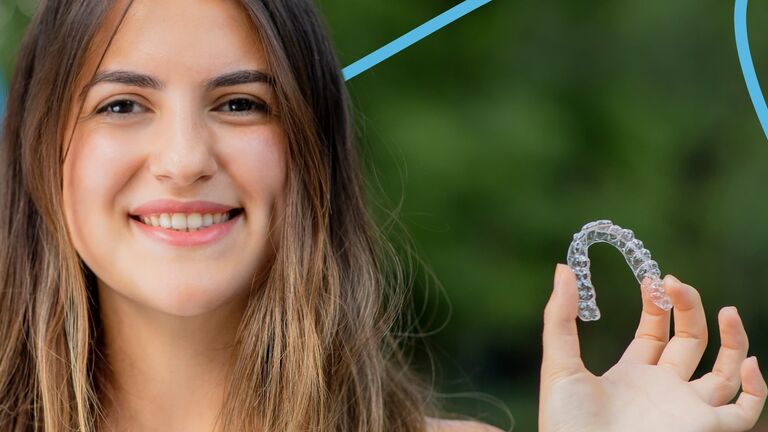
Invisalign FREE teeth whitening
Invisalign FREE teeth whitening
08.04.2024
5 Signs You Should See an Endodontist
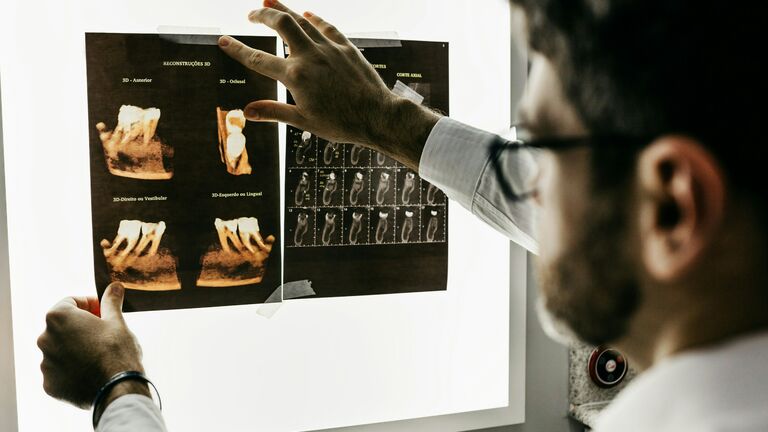
04.04.2024
Can I Get Implants with Gum Disease?
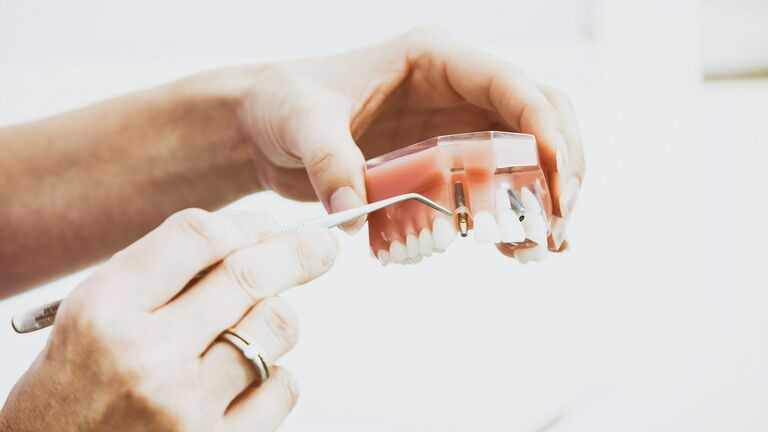
04.04.2024
What Can I Eat After Dental Implant Surgery?

Call us to make an appointment
We are accepting new patients and our team are here to help